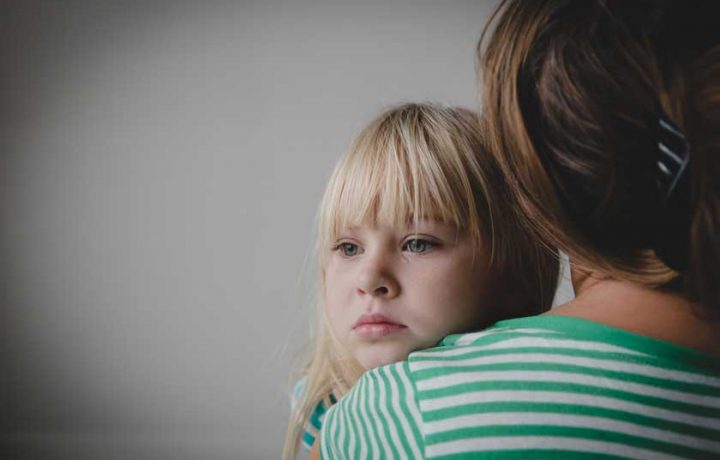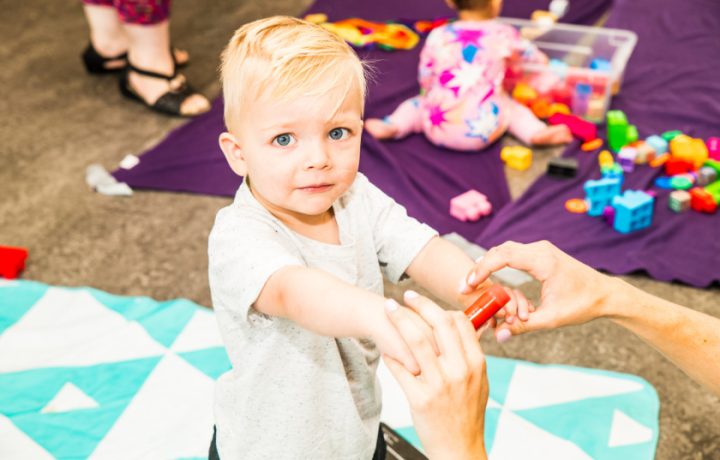Kids and COVID-19 – Canberra experts explain what children need to know

Posted on
How are our kids coping with COVID-19? While the virus is generally much less harmful to children than adults physically, the mental load of a global pandemic can certainly make an impact on young minds.
The ACT’s Chief Psychiatrist Dr Denise Riordan said there were ways in which parents could check in with their kids to ease concerns and minimise anxiety, but she also noted parents were likely to be experiencing their own mental health pressures and needed to be mindful of this too.
“We are in unchartered territory and, as parents, our normal methods of looking after our own mental health by going and having a coffee with a friend, or doing an activity we enjoy, may well be temporarily curtailed.”
She stressed, however, that children would model their own emotional responses to the virus based on what they observed in their parents.
“It is really important for parents to be calm when they talk to their children about COVID19 and to give their children reassurance that they will be safe and cared for, and to explain that experts are working hard around the world to treat people who get sick.”

ACT Chief Psychiatrist Dr Denise Riordan. Photo: supplied.
Dr Riordan said as a general rule for younger children (middle years of primary school or below), parents should be guided by the questions of the child rather than sit them down for a formal talk.
“While we need to make sure our children know the difference between any rumours or talk they may hear at school and the actual facts of the situation, but it’s best to just let them ask what they want to know and focus on responding to what is troubling them, rather than give them too much information all at once”
Older children may require more information and a parent’s role could be to ensure they were accessing reputable sources and timely information, particularly in the high school years when they had access to social media. Parents could then use this as an opportunity to check in with their young people to see how they are feeling, and then to support them around particular worries or concerns they might have.
Dr Riordan stressed that no one—children or parents—was likely to benefit from excessive exposure to media coverage of the virus at the moment.
“I would definitely limit any media exposure for young children through background radio reports or television news channels being on. We need to keep informed about a changing situation, but it might be more helpful to limit updates to just one or two a day.”
Dr Riordan understood that Canberrans were already suffering the mental health impacts of a difficult or challenging start to the year and many were concerned about virus anxiety coming on top of anxiety about the bushfire and smoke threat and extreme weather events in January and February.
“There is no doubt that we are already existing in a heightened state of anxiety following a fairly traumatic start to the year for so many.”
She also acknowledged that parents may also face additional pressure as the financial impact of COVID19 was felt and territory jobs became less secure.
“I understand many families will be feeling acute financial pressures in the coming weeks and certainly that can filter through to children. In this situation, it really is important that parents can speak with other adults to express their fears and frustrations rather than their children.”
While the next few weeks of voluntary self-isolation and the cancellation of many of the usual school and sports routines would be further disruption for children, Dr Riordan saw it as a chance for families to press “pause” and to slow down. This would also be the case if schools were closed and children were sent home for extended periods.
“It can be seen as a time for families to bunker down and engage in some really enriching experiences, whether it is old-fashioned board games or just having the time to watch a movie together. While I understand it is putting a big load on parents, who are already carrying quite a burden, the best way to manage children is to make them feel safe, to show them that life goes on and to try and have fun where possible.”
She also urged parents who noticed a change in anxiety levels, evidenced by changes to normal behaviour in their children, to seek professional advice (See contact box at the bottom of article).
Some indicators of anxiety included disruption to sleep and appetite, changes in mood, a child who was overly frustrated or teary, or not engaging in activities that were previously enjoyed.
Clinical Psychologist Kevin Bulbeck said his practice at the Canberra Psychology Centre for Children and Families was always busy with children suffering varying degrees of anxiety and it had been a difficult start to the year for many.
“Naturally children who tend to be anxious will worry about (COVID19). We try and address the reality that it does not affect children as strongly as adults and to our knowledge, no child has died from it. All the children I have seen know this already, and parents have been really good at talking to their children about it.”
He suggested parents who were keen to gain greater advice on how to address the issues with their children could read the Australian Psychological Society’s guide.
ACT Education Minister Yvette Berry, meanwhile, said school teachers, counsellors and psychologists had already received additional training in trauma at the start of the school year.
“The recent bushfires, extreme weather events and now COVID-19 have of course had an impact on the mental health and wellbeing of students and school communities—and the community as a whole.
“In preparing for the start of the school year, all school psychologists received additional training in trauma. Teachers also received additional professional learning to support students through the challenges we experienced earlier in the year.
“This work is ongoing as we continue to face new challenges as a community and all ACT public schools have access to psychologists.”
She also paid tribute to Canberra teachers “who do an incredible job of supporting the wellbeing of our children. The importance of their role cannot be understated and I thank them for being there every day to educate and support our children through these extraordinary circumstances.”
She encouraged students, parents and teachers to reach out to the supports available to them.
“This is going to be a challenge our community will be managing for a while to come and it’s so important that we take care of our mental health and look out for each other. If we stay united, we will get through this as a community.”
Who to contact for more information and assistance
Young People
Child and Adolescent Mental Health Service
Adults


Leave a Reply
You must be logged in to post a comment.